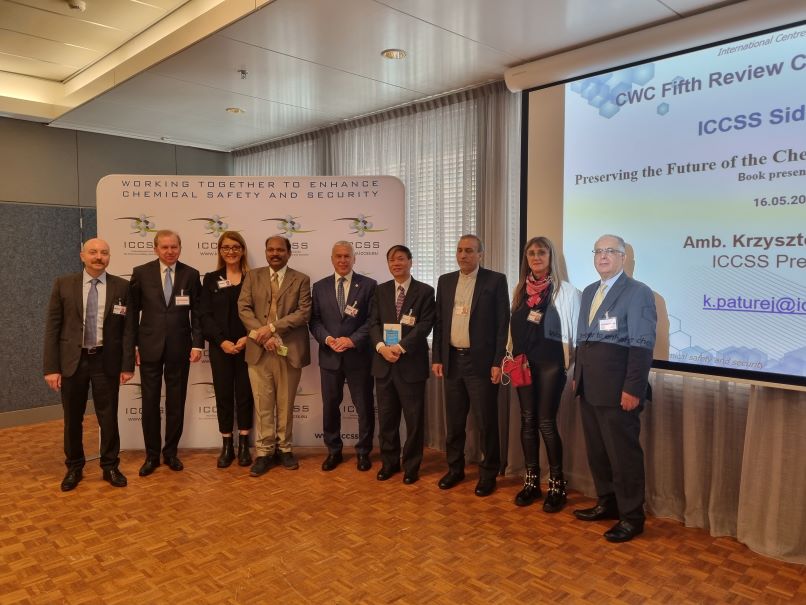The book examines the effectiveness of the regime prohibiting chemical weapons, identifies challenges and offers recommendations to address them. The report suggests ten areas of concern and action, such as enhancing mechanisms to address chemical weapons threats, seeking consensus and cooperation, and expanding the focus of the OPCW. The report proposes fostering multi-stakeholder collaboration and capacity building among governments and international organizations, relevant industries, civil society, academia, civil society and media. Ultimately, the objective is to achieve convergence between chemical and biological regimes to ensure effective disarmament efforts and chemical and biological safety and security.
Mr. Krzysztof Paturej is well-known for his extensive experience in multilateral diplomacy, negotiations, and multicultural relations. Throughout his career, Mr. Krzysztof Paturej has held various key positions in the Polish Ministry of Foreign Affairs, as former Representative of Poland to the OPCW, and international organizations, including the Director of the Office of Special Projects at the OPCW Technical Secretariat. Nicknamed "Mr. Consensus," Amb. Krzysztof Paturej has earned this title due to his diplomatic abilities and negotiation style, which focuses on finding common ground among diverse parties rather than sticking to rigid positions. This approach has allowed him to guide discussions towards mutually beneficial compromises, fostering unity and collaboration among conference participants. As a result, the conferences he has chaired, such as the OPCW Executive Council, sessions of the Conference of States Parties, and the 3rd CWC Review Conference, and other international gatherings have experienced successful outcomes and strong, cooperative agreements. Moreover, he has been instrumental in fostering relations and programs with OPCW stakeholders, such as the private sector, industries, NGOs, academia and local authorities.
In recent years, Mr. Krzysztof Paturej and the Team of the International Centre for Chemical Safety and Security (ICCSS), offer their services to operationalize and internationalize capacity building, best practices, develop national regulatory frameworks in CBRN and environmental safety and security, to enhance public security and civil protection against all kind of threats, including hybrid threats.
The publication: Preserving the Future of Chemical Weapons Prohibition Through Collaboration: A Roadmap for Success at the Chemical Weapons Convention 5th Review Conference and beyond," authored by Mr. Krzysztof Paturej, could be accessed via the following link:

